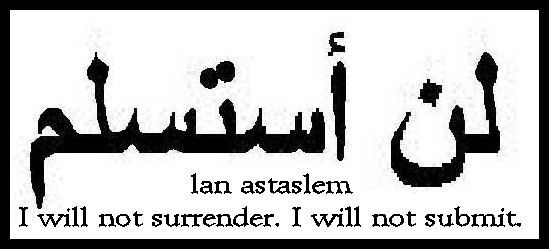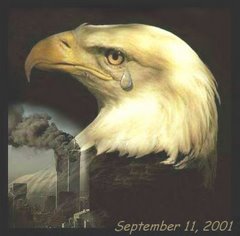The Myths of Islam, Part 3

The Myth:
Islam is completely incompatible with acts of terrorism. It is against Islam to kill innocent people.
The Truth:
Even though many Muslims earnestly believe that their religion prohibits the killing of innocent people by acts of terrorism, the truth is certainly more complicated. This is why the Jihadis and their detractors are both able to point fingers at the other, while confidently insisting that they are the true Muslims.
In fact, the definition of an “innocent person” is far more ambiguous in Islam than Muslim apologists will lead others to believe. So, also, is the definition of terrorism.
First, consider that anyone who rejects Muhammad is not considered to be innocent under Islamic law. The most protected and respected of all non-Muslims are the dhimma, the “people of the book.” These would specifically be Jews and Christians who agree to Islamic rule and pay the jizya (tribute to Muslims). Yet, the word “dhimmi” comes from the Arabic root meaning “guilt” or "blame." ["...the dhimmi parent and sister words mean both 'to blame' as well as safeguards that can be extended to protect the blameworthy" Amitav Ghosh, In an Antique Land]
So, if even the dhimma have a measure of guilt attached to their status (by virtue of having rejected Allah’s full truth), then how can non-Muslims who oppose Islamic rule or refuse to pay the jizya be considered “innocent?”
Within the Islamic community itself there is a category of Muslims who are also said to bear guilt – greater even than the average non-believer. These are the hypocrites, or “Munafiqin,” whom Muhammad referred to in the most derogatory terms. A hypocrite is considered to be a Muslim in name only. They are distinguished either by an unwillingness to wage holy war or by an intention to corrupt the community of believers.
When Muslims kill Muslims in the name of Allah (which occurs quite frequently), they usually do so believing that their victims are Munafiqin or kafir (unbelievers). This is actually a part of Islamic Law known as takfir, in which Muslims are declared apostates and then executed. (A true Muslim would go to paradise anyway, in which case he or she could hardly be expected to nurse a grudge amidst the orgy of sex and wine).
In addition to the murky definition of innocence, there is also the problem of distinguishing terrorism from holy war. Islamic terrorists never refer to themselves as terrorists, but always as holy warriors (Mujahideen, Shahid, or Fedayeen). They consider their acts to be a form of Jihad.
Holy war is something that Muhammad commanded in the Qur’an and Hadith. In Sura 9:29, he establishes the principle that unbelievers should be fought until they either convert to Islam or accept a state of humiliation under Islamic subjugation. This is confirmed in the Hadith by both Sahih Muslim and Bukhari.
In many places, the prophet of Islam says that Jihad is the ideal path for a Muslim, and that believers should “fight in the way of Allah.” There are dozens of open-ended passages in the Qur’an that exhort killing and fighting – far more than ones of peace and tolerance. It is somewhat naïve to think that their inclusion in this "eternal discourse between God and Man" was of historical value only and not intended to be relevant to present-day believers, particularly when there is little to nothing within the text that distinguishes them in such fashion.
Combine the Qur’anic exhortation to holy war with the ambiguity of innocence, and a monumental problem develops that cannot be covered over by mere semantics. Not only is there a deep tolerance for violence in Islam, but also a sharp disagreement and lack of clarity over the conditions that justify this violence... and just whom the targets may be.
Even many Muslims who claim to be against terrorism still support the “insurgency” in Iraq, for example, and often entertain the allegation that there is a broader “war against Islam.” Although the Americans in Iraq are trying to protect innocent life and help the country rebuild, Muslims around the world and in the West believe that it is legitimate for Sunnis to try and kill them.
Enjoying the sanction of holy war, the Mujahid reasons that it is permissible to attack fellow Iraqis – the ones helping the Americans… even if they are part of a democratically-elected Iraqi government. These non-combatants and combatants alike are believed to be the “Munafiqin” assisting the enemy “Crusaders.”
Although we use Iraq as an example here, this is the same rationale that is ultimately behind all Islamic terror, from the Philippines to Thailand. Wherever the religion of Islam is a minority, there are always radicals who believe that violence is justified in bringing it to dominance - just as Muhammad taught by example in places like Mecca and the land of al-Harith.
And what of the so-called “innocents” who suffer from the bombings and shootings? Even in Muhammad’s time they were unavoidable. The much-touted hadith in which Muhammad forbade the killing of women also indicates that there were such casualties in his conflicts.
If there is any doubt that he believed that the forbidden is sometimes necessary, it should be put to rest by an incident in which Muhammad's men warned him that a planned night raid against an enemy camp would mean that women and children would be killed. He merely replied “they are of them,” meaning the men.
This is the slippery slope that is opened by the sanction of holy war. What starts out as the perception of a noble cause of self-defense against a supposed threat gradually devolves into a "let Allah sort them out" campaign through a series of logical steps that are ultimately justified by the sublime goal of Islamic rule.
Islam is not intended to co-exist as an equal with other religions. It is to be the dominant religion, with Sharia as the supreme law. Islamic rule is to be extended to the ends of the earth, and resistance is to be dealt with by any means necessary.
Apologists in the West often shrug off the Qur'an's many verses of violence by saying that they are only relevant in a “time of war.”
To this, Islamic terrorists would agree. They are at war.
Islam is a Democracy
The Myth:
Islam is compatible with democratic principles. The religion itself is a democracy.
The Truth:
A democracy is a system in which all people are judged as equals before the law, regardless of race, religion or gender. The vote of every individual counts as much as the vote of any other. The collective will of the people then determines the rules of society.
Under Islamic law, only Muslim males enjoy full rights. The standing of a woman is often half that of a man's - sometimes even less. Non-Muslims have no standing with a Muslim.
The Islamic state is guided by Islamic law, derived from the Qur'an and Sunnah. A body of clerics interprets the law and applies it to all circumstances social, cultural and political. The people are never to be placed above the Qur'an and Sunnah any more than man should be above Allah.
It is somewhat debatable as to whether there are any states in the Muslim world that qualify as actual democracies. There is no denying, however, that the tiny handful that are often held up as democratic nations are ones in which deep tension exists between the government and religious leaders, as the later often complain that it is an idolatrous system imposed on them.
Islam does not facilitate democracy.
Further reading:
Democracy and Islam
Loyalty to a Non-Muslim Government











































|